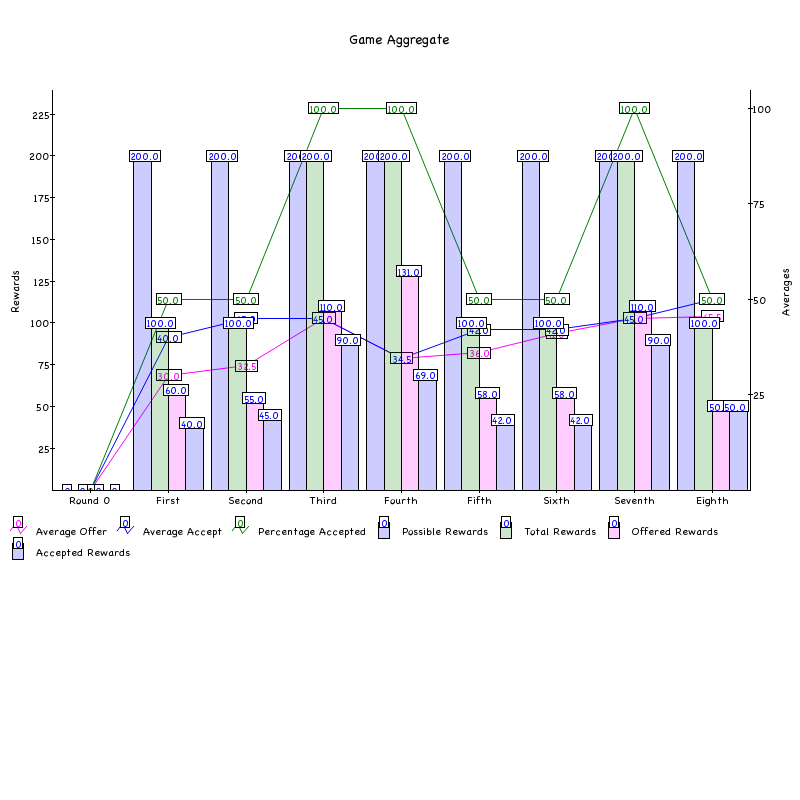
Pacific Coast Environmental Metrics
"Specializing in measuring intangibles."
 Pacific Coast Environmental Metrics "Specializing in measuring intangibles." |
|
Zero Waste Planet Services Our Mission Social Games Common Pool Resources Collective Action Publications/Working Papers Clients Frequently Asked Questions About Us Quotes Top Level PCEM Box 63 Malahat, B.C. V0R 2L0 (250) 730-3738 metrics [at] pcem.ca |
What are "social games?" Why play them? Social games are enormously useful in conveying concepts, measuring social capital, and solving problems. We have all heard of games like "Chicken" and "Rock, Paper, Scissors" but have you heard of the "Ultimatum Game?" It is a very simple two-person game. One player has a resource. That player offers the other player a fraction of the resource. If the second player accepts, they share the resource as agreed. If the second player declines, neither get any fraction of the resource. Why would the second player decline at all? This introduces just how rich this game can be. The reason the second player would decline is to sanction the first player for offering a socially unacceptable amount. This game has been studied across many cultures and under many different conditions, such as allowing communication or preventing it altogether. The amounts offered and accepted (or declined) are tied directly to social mores and can reveal a great deal about the culture - although sometimes understanding why the amounts are what they are requires some studying and exploration. When Pacific Coast Environmental Metrics works with a group of individuals attempting to manage a resource, we play the Ultimatum Game as part of the process. No personality tests, no group hugs, just straight up measurement of what willingness exists towards achieving an optimal collective outcome. PCEM can also identify and develop games that model (on a simplistic level) the resource being managed. Although the current fad is to develop games on computers, PCEM specializes in developing human-centered games, with all of the mistakes and discomfort associated with working out agreements and keeping them. While PCEM can and does develop computer games as tools, the real work is getting the people to recognize that their decisions affect other people. The image to the right is a display of the results of an Ultimatum Game played with four participants. Two participants were able to develop a good relationship and regularly had accepted offers. The other two participants were unable to overcome early insults and spent the remainder of the game in a "Tit-for-tat" cycle, each reciprocating the last insult. Collectively the two participants that were working together well earned over 30% more than the two participants that attempted to maximize their own returns. |
 |
 |
||